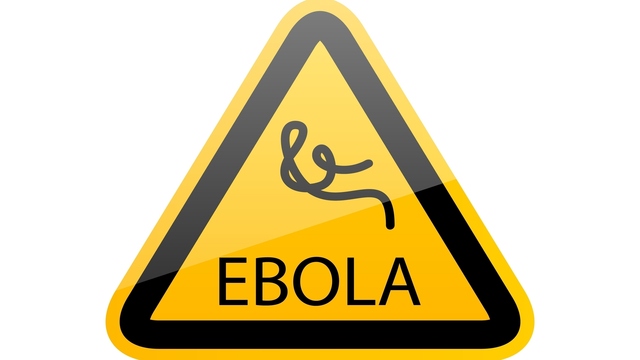 Global Panorama/Flickr
Global Panorama/Flickr
The Ebola virus has continued to spread over the past week and it is now seen as the deadliest outbreak in the history of the disease. World leaders are quickly trying to come up with solutions and U.S. federal health officials are warning people to not travel to countries with the greatest risk of Ebola virus, including Guinea, Sierra Leone and Liberia, according to the New York Times.
Frightened by the recent news surrounding the Ebola outbreak and not exactly sure what the disease is all about? Here are 7 things you need to know about the biggest Ebola outbreak ever.
1. The current death toll from Ebola has reached 729 people
The World Health Organization (WHO) announced that over the course of four days, from July 24 to July 27, 57 people died and 122 new cases of Ebola were detected. The total number of people currently infected is 1,323, which is the largest single outbreak that has occurred since Ebola was first identified about 40 years ago, the New York Times said.
2. This is the biggest outbreak of Ebola ever
Compared to other diseases, Ebola really isn’t very old. The first Ebola virus strain was discovered in 1976 along the Ebola River in what today is the Democratic Republic of Congo, according to the Centers for Disease Control and Prevention. Since 1976, other outbreaks have occurred in the region, but no other outbreaks have caused as many deaths.
The CDC issued a Level 3 travel warning on July 31, 2014, urging people to avoid travel to Guinea, Liberia and Sierra Leone, countries experiencing the outbreak. The CDC uses travel notices to let travelers know about health concerns in different countries. This is a very serious warning, as these are the only three countries in the world listed as Level 3, the highest warning, by the CDC.
3. Ebola symptoms are extreme and range from headache to bleeding throughout the body
When infected with Ebola, the first set of symptoms include fever, muscle pain, intense weakness, sore throat and headache, according to WHO. Next come symptoms like vomiting, rash, diarrhea and impaired liver and kidney function.
The symptom most commonly associated with Ebola is internal bleeding as well as bleeding from body orifices, including eyes, mouth, rectum, nose and ears. According to the CDC, symptoms can start as early as 2 days after being exposed to the Ebola virus, but 8-10 days after is most common.
4. People get infected with Ebola through the spread of bodily fluids
Ebola first enters a human population after contact between a human and infected animal. Some common animals that may carry the disease include monkeys, gorillas, chimpanzees, fruit bats, porcupines and antelopes, according to WHO. Once a human contracts the virus, it can spread between humans. Close contact of bodily fluids including blood, semen, saliva, mucus and urine of infected individuals can spread Ebola, WHO said.
Health workers caring for patients with Ebola are most at risk for contracting the disease. In regions of Africa where Ebola is common, the virus is sometimes spread during burial ceremonies when mourners come in close contact with bodies that had the virus.
5. There is currently no vaccine for Ebola, but trials are planned
At this time, there is no vaccine for Ebola. However, WHO said there are many vaccines being tested. The U.S. plans to try an early-state trial of an Ebola vaccine in September, USA Today said.
For many years, the National Institutes of Health (NIH) has been working on creating an Ebola vaccine. The vaccine has been tested on primates and has had “encouraging results,” said Anthony Fauci, director of the National Institute of Allergy and Infectious Disease, USA Today said.
6. It is unlikely that the Ebola outbreak will spread outside west Africa
Although Ebola has been spreading quickly the past week, it is not very likely that is will spread past west Africa. Patrick Sawyer, an American from Minnesota, contracted Ebola while working as a government official in the Liberian Ministry of France. After leaving Liberia, he traveled to Nigeria and died there on July 25, 2014, according to nymag.com. Because this was Nigeria’s first documented case of Ebola, it sparked fear that it may continue spreading in Nigeria, then other countries.
Despite the fear of Ebola spreading into other countries, experts say it will most likely stay contained in west Africa. “The chance of Ebola spreading out of West Africa is very, very low,” infectious disease specialist Kamran Khan of St. Michael’s Hospital in Toronto told NPR.
7. Experts say the U.S. would be prepared if Ebola spread there
The worst outbreak of Ebola in history has made people ask, “What would happen if Ebola spread to the U.S.?” According to experts, the health care system in America would be prepared, CNN said.
“I think any major medical center can take care of any Ebola patient,” Dr. William Schaffner, an infectious diseases expert at Vanderbilt University’s School of Medicine told CNN. “We have isolation rooms we use all the time.”
The CDC also has several quarantine stations established throughout the U.S. that are staffed 24/7, CNN said. Hospitals in the U.S. as well as other countries are also on high alert for any symptoms related to Ebola.
Have any other questions concerning Ebola? Ask us in the comments below!
Sources
Could History’s Worst-Ever Ebola Outbreak Spread Outside of West Africa? New York Magazine. Retrieved July 31, 2014. http://nymag.com/daily/intelligencer/2014/07/could-ebola-spread-outside-of-africa.html
Could the Ebola Outbreak Spread to Europe or the U.S.? NPR. Retrieved July 31, 2014. http://www.npr.org/blogs/health/2014/06/25/324941229/could-the-ebola-outbreak-spread-to-europe-or-the-u-s
Ebola Hemorrhagic Fever. Centers for Disease Control and Prevention. Retrieved July 31, 2014. http://www.cdc.gov/vhf/ebola/
Ebola Hemorrhagic Fever Signs and Symptoms. Centers for Disease Control and Prevention. Retrieved July 31, 2014. http://www.cdc.gov/vhf/ebola/symptoms/index.html
Experts: The U.S. is ready for Ebola. CNN. Retrieved July 31, 2014. http://www.cnn.com/2014/07/31/health/ebola-isolation-treatment/index.html?hpt=hp_t2
Frequently asked questions on Ebola virus disease. World Health Organization. Retrieved July 31, 2014. http://www.who.int/csr/disease/ebola/faq-ebola/en/
Nations Intensify Efforts to Suppress Ebola Outbreak in West Africa. New York Times. Retrieved July 31, 2014. http://www.nytimes.com/2014/08/01/world/africa/sierra-leone-declares-health-emergency-over-ebola.html?_r=0
NIH to launch early Ebola vaccine trial in September. USA Today. Retrieved July 31, 2014. http://www.usatoday.com/story/news/nation/2014/07/31/ebola-vaccine-trial/13404609/
Travel Health Notices. Centers for Disease Control and Prevention. Retrieved July 31, 2014. http://wwwnc.cdc.gov/travel/notices





Add a Comment2 Comments
WHAT?
December 11, 2014 - 2:22pmThis Comment
There is a very simple way to stop the spread of the virus. Testing everyone BEFORE they fly and not allowing them to fly if positive. Same as if a VISA was required to travel. We would not allow foreigners without VISAs to enter Western countries, why should we allow infected people who are still in the incubation period and symptom-free? Let everyone travelling out of infected countries take a blood test before being allowed to fly, just like they have to get a VISA before they fly. There is no point in checking on arrival, when the rest of the plane could potentially be infected.
October 10, 2014 - 4:58amThis Comment